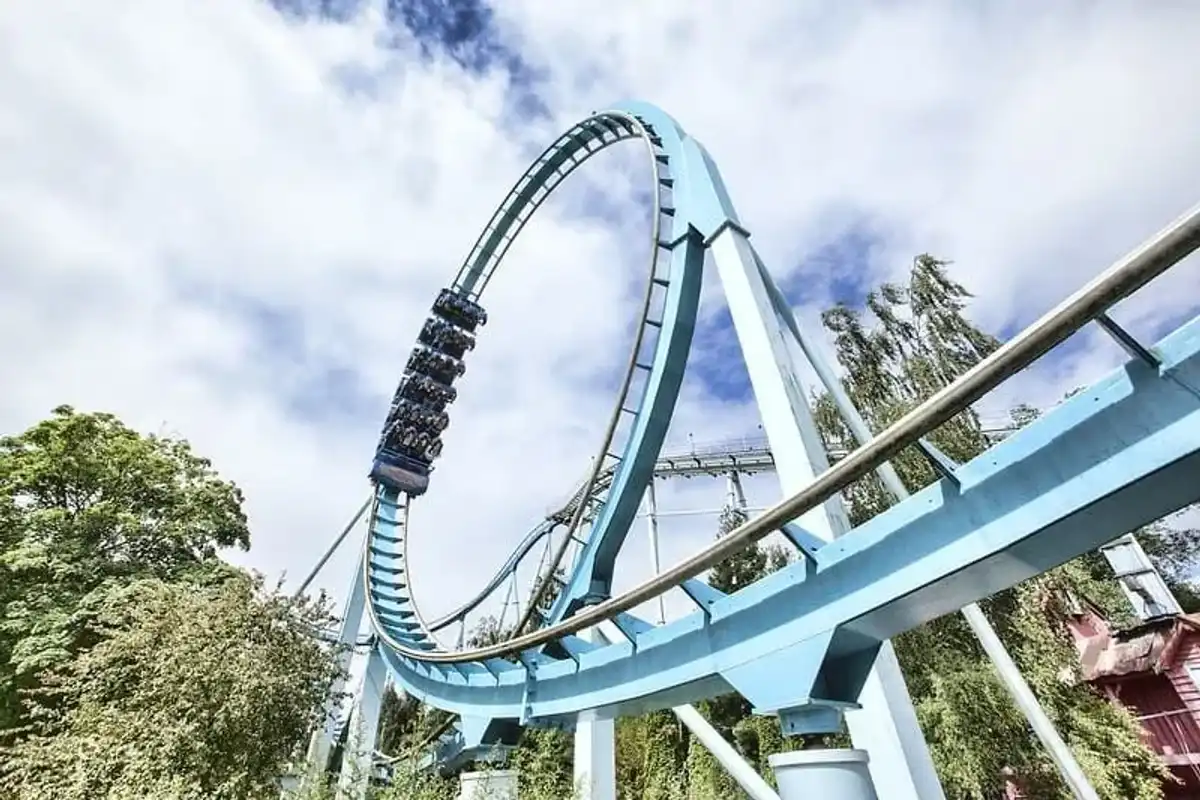About Abhijeet Modi
An experienced and innovative entrepreneur and creative writer, Abhijeet holds a Bachelor's and Master's degree in Computer Application from Birla Institute of Technology, Jaipur. He co-founded an e-commerce website while developing his skills in content writing, making him an expert in creating blog posts, website content, product descriptions, landing pages, and editing articles. Passionate about pushing his limits, Abhijeet brings both technical expertise and creative flair to his work.
Family interest
In house speciality
Qualifications
- Master of Computer Science
Recent Work
Why Do People Pass Out on Rides? How Can You Prevent It?
It's a familiar scene on social media: excited riders on amusement park attractions, such as roller coasters, who suddenly succumb to unconsciousness mid-ride. The phenomenon of people passing out on these rides is not merely a curious anecdote; it's an involuntary response to the extraordinary physical demands these rides place on the body.
Engineered to maximize adrenaline with their steep ascents, abrupt descents, and sharp curves, these rides subject the body to intense g-forces. These forces can mimic multiple times the force of gravity, resulting in significant physiological stress.
But what causes the body to react in such an extreme way to these thrilling experiences? The key to understanding this lies at the intersection of human biology and the physics that govern these action-packed rides. Human bodies are equipped with complex systems designed to maintain equilibrium, but the high g-forces challenge this equilibrium, disrupting blood flow and pressure.
This can trigger a range of responses, from mild disorientation to complete loss of consciousness. Delving into the specifics of how g-forces interact with the cardiovascular and neurological systems reveals the precise reason why a ride's sudden twists and exhilarating speeds can sometimes be too much for even the most daring thrill-seekers.
Can Hamsters Eat Bread? Find Out If It Is Healthy For Them
Pet owners often ponder whether it's safe to feed hamsters bread, a staple in human diets. Curiosity stems from a desire to ensure the health and happiness of these small pets. Hamsters, with distinctive cheek pouches and high energy levels, especially when running on wheels, require a diet that satisfies hunger while meeting nutritional needs. The question of including bread, such as wheat, whole grain, or white varieties, in a hamster’s diet is important for those looking to provide optimal care.
As small rodents with specific dietary requirements, hamsters’ health relies on careful management of their intake. In wild habitats, their diet is a mix of seeds, cereals, insect larvae, and insects like crickets. This diverse, natural diet is dense with nutrients, equipping hamsters with essential vitamins and minerals.
In assessing bread as a food item for hamsters, its nutritional profile and role in the hamster diet must be understood. Bread, and particularly whole grain varieties, are sources of grains and seeds that harmonize with a hamster's organic diet tendencies. For instance, whole wheat bread comes fortified with magnesium and protein, aiding in the maintenance and helping to keep the heart and brain healthy.
However, moderation is key when incorporating bread into the hamster diet, ensuring it complements a range of other nourishing foods. It is particularly important to steer clear of white bread due to its heavy processing, heightened sugar content, and reduced nutritional benefit when compared to whole grain or brown bread.
While hamsters can manage small servings of specific bread types, such as whole grain or wheat bread, these should occupy a minor role in their overall diet. Bread can most times be a treat for hamsters, however, it falls short of providing the extensive nourishment required by hamsters.
Dietary staples should always consist of specially formulated hamster pellets or seed mixes, enhanced with fresh produce suitable for the species. Fostering dietary health necessitates gradually introducing new edibles in small portions, avoiding digestive disturbances, and seeking veterinary guidance concerning any diet or health uncertainties.
91 Super Funky Names That You Haven't Heard Before
In the vast universe of names, there lies an undiscovered galaxy of labels that tickle the imagination and catch the ear with their uniqueness. This list of names offers a parade of uncommon monikers, each with a zest that promises to stand out in any roll call.
These cool baby names are not just plucked from the collective creative consciousness but echo the spirit of parents who dare to be different, and wish for their child to carry a name as distinctive and memorable as their dreams for them.
The journey to finding the perfect, funky name for your little one, pet, business, or team starts here, where the rhythm of unique syllables weaves tales of creativity and rarity in every utterance. Embrace the world of the extraordinary, where names venture beyond the common and into the realm of delightful surprise.
Ready To Get Spooked? Book Tickets For The Edinburgh Dungeon
Embark on the underground journey through the darkest history of Edinburgh, in this award-winning visitor attraction that is a combination of theatrical actors, 360-degree theatrical sets, special effects, and exciting rides in a fully immersive walkthrough experience. Every show is based on Scottish history, so this is the best way to experience historical events, in the most exciting way. Located on East Market Street in the city centre of Edinburgh, the Edinburgh Dungeon is full of gallows humour that is worthy of the Dungeon name. Book your ticket and your time slot to make your entry to one of the most exciting attractions in Edinburgh and Scotland, filled with live actors and characters that will make your ultimate underground journey one to remember. Book your Edinburgh Dungeon tickets today.
35+ Ash Ketchum Quotes
Ash Ketchum appears as the main character in the Pokémon anime, a few manga books, and on various franchise-related goods.
Rika Matsumoto provides the voice for the Japanese version of the character. His original name was changed in 1998 when it was revealed that the Pokémon anime would be dubbed into English.
He was chosen because of the catchphrase of the Pokémon series, "Gotta catch 'em all." The name Satoshi was anglicized to Ash. He is a pretty friendly character and loves his friends, which is shown in one of his quotes: "A good friend left me… and I miss her every day.
But I know we'll always be friends. Forever." Moreover, he wasn't the one who could get exhausted that easily.
Once, Misty asked him, "Huh? Aren't you exhausted?" He replied: "Not a bit, and I couldn't sleep anyway since I was thinking about my battle with Gary".
Ash Ketchum quotes are very interesting that will be adored by all pokemon lovers. Some of them are about his friends, some are inspirational, some are funny, and they also talk about Pikachu. We will deep-dive into some of these well-known Ash Ketchum quotes to get some inspiration while laughing.
15+ Pinkie Pie Quotes
Pinkie Pie first appeared in the show, 'My Little Pony: Friendship Is Magic', the movie 'My Little Pony: The Movie', and then the show 'My Little Pony: Pony Life'.
She also appeared in the fourth film 'My Little Pony: Equestria Girls' and the fifth film 'My Little Pony: A New Generation' as a ghost. The pink Earth pony is a regular at Sugarcube Corner, where she helps Mr. Cake and Mrs. Cake with their job, watches over their children, and throws parties for the ponies of Ponyville.
She is a prolific songwriter and performer who keeps a toothless baby alligator named Gummy as a pet. She personified joy. Pinkie's human equivalent emerges as a high school student in an alternate world.






